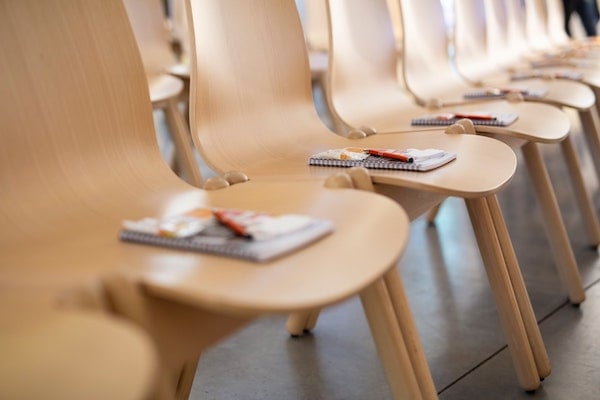Published on
How Continuing Studies Are Being Affected By COVID-19

Shutdowns and the shift to remote learning aren’t just affecting traditional college and university campuses—they’re impacting operations for continuing and professional education divisions as well. In this interview, Maureen MacDonald discusses how the University of Toronto’s School of Continuing Studies has been affected by COVID-19, and reflects on how everyone is adapting to this shift in learning modality and workplace.
The EvoLLLution (Evo): How have the School of Continuing Studies’ operations and learners been affected by the shift to remote learning and work?
Maureen MacDonald (MMD): We’re all working remotely, so our call center is done virtually. We’re still answering phone and email inquiries. On March 13th, we made the decision to suspend classes for a week so we were able to triage what could go online, and if there was anything we had to cancel.
We had over 800 sections on the go when the decision was made to move online. About a third of those were already online, which will continue business as usual. We also had about 438 in-class courses happening, and about 40 of them were in their final stages, so they were effectively taken care of. But we had 80 upcoming sections. For the moment we’re canceling those, and we’ve had to move 286 core sections online.
For us that means we had to provide training to all part-time instructors working in the community. We’ve been doing training sessions all week to help folks teach in this new format. All hybrid courses have been moved online. There are about ten courses that we’re going to have to cancel because the format and content are such that you just can’t deliver it online. In those cases, we’re paying the instructors out for the full semester and refunding all of the learners that were enrolled. Most of our arts and science courses are suspended for the moment as well. There are upcoming courses in the future that we’ll likely also cancel, not because we can’t run them online but because we need to provide learners with some clarity around what these courses would actually offer, since some of them require a fairly significant time commitment.
Other things we’ve had to consider are our withdrawal, transfer and our refund policies as well as exam procedures. We’re moving to remote proctoring for our exams, but The challenge is that most vendors are so swamped with every other university wanting to follow suit that we may have to delay some of the exams. For some, we have to work closely with our professional association partners. Where there’s accreditation involved, we can’t unilaterally make decisions around exams. The instructors will have to dictate what works and what’s acceptable for their standards.
Luckily, we were able to quickly move our twelve-week English language program , online. This was important because many folks need to finish that program to achieve necessary admission standards for the university. We couldn’t leave them incomplete.
We’re finding that for the four-week English language programs, though, most learners just started the program and most just wanted to go home. So, we refunded them their money and they’ve moved back to their respective countries, which for many happens to be Japan. Now that the borders are closed, the English language program will likely not be seeing any new students for the foreseeable future. That’s going to have a fairly significant financial impact on us.
Evo: How are you keeping everyone apprised of what’s going on?
MMD: We have a full suite of tools designed to support active communication and collaboration. Most teams have video conferences through Zoom or Microsoft Teams, and they’re connecting at least once a day. People are checking with their supervisors regularly, whether one-on-one or with multiple people at a time.
We have a contingency planning group, and we tend to meet every other day by Zoom. Our leadership team is continuing our regular meetings. So far, knock on wood, it’s been fine but I think people are starting to worry about the technology tools withstanding the huge volumes of users.
Evo: How are people, both staff and learners, adapting to this new normal?
MMD: It is still early days. This is just day three for us and the university is still technically open but with restricted access. The campus is closed to the public, and only certain staff have access. But to date, people are making the best of it.
For those that are less technically or technologically literate, it’s been a bit of a challenge. And right now, people are working from home but in many cases with kids and/or pets running around. So it’s not a typical work environment.
Everybody’s doing the best they can, having little sidebar conversations on Slack and those sorts of things bring a little bit of levity to what’s going on.
Evo: What’s surprised you the most about the changes that have been taking place over the last few days, and the way that folks are keeping pace with that change?
MMD: I’m not surprised but absolutely delighted by how our folks have pulled together to get this done and also been quite pleased with the way our part-time instructors are embracing the notion of having to deliver online.
To be clear, delivering courses through alternative means doesn’t necessarily mean they are fully conducted online. Our online courses have been developed and consciously designed to be outstanding courses for the online environment. But in some cases, we’re just trying to get the learners through the last three weeks of the term.
Evo: Is there a concern that the quality and experience of remote learning will be confused with online education?
MMD: I think it’s a factor to think about. Some of the feedback that’s coming from the main university is that the learners are really embracing it. Faculty are being much more creative than they have been with their standard classrooms. For example, someone brought in guest lecturers for 20 minutes in a synchronous class, which typically would have never happened otherwise. People are too busy to take the time to travel and lecture to a class, but we’re finding that they’re happy to sit down for 20 minutes in front of their computer and do a short talk to a group of students.
Evo: Do you see a new normal forming for higher education where we integrate more distance education tools and mechanisms in the traditional space?
MMD: I think it all of this will certainly open the discussion. There’s a fear among faculty, though, that this will be taken as an opportunity to “re-engineer” higher education. Or, more cynically, to cut faculty jobs. , our university’s response has been that remote learning is not designed around cutting costs.
It’s too soon to say what the final picture will look like, but it will certainly bring an openness to discussions that in the past were verboten.
Evo: What are some of the lessons about disaster preparedness that you’ve taken from this experience so far?
MMD: You have to be open to doing things differently. I’ve been super-fortunate to have a great leadership team whose members have been willing to take the lead, roll up their sleeves and do whatever’s possible. When leaders demonstrate openness and willingness, everybody else buys into it to a degree.
These are unusual times and we need to be willing to do things in a different way. Continuing studies has always been at the forefront of re-imagining what higher education might look like, so this is probably ramping up the speed at which this progress was already going to happen. In many respects, we already have the right people around the table that will enable us to move forward.
This interview was edited for length and clarity.
Editor’s note: This interview was recorded on March 20, 2020.
Author Perspective: Administrator



